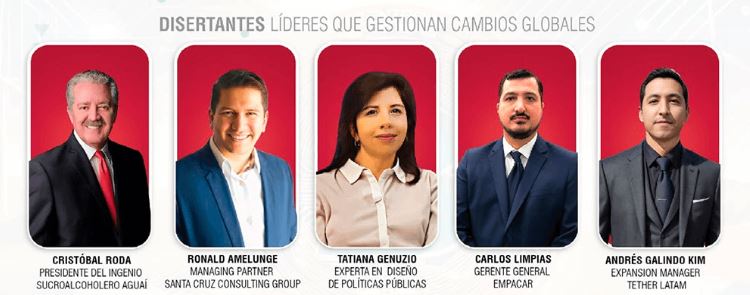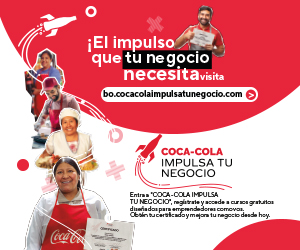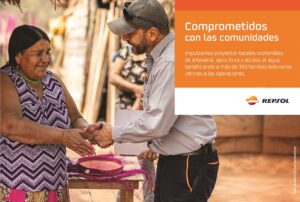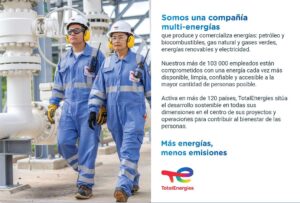The 2025 Annual Energy Dinner (CAEE) once again sold out. It brought together the most prominent figures in the energy sector and opened the door to proposals for moving toward opportunities in a clear context of crisis…
ISSUE 142 | 2025
Raúl Serrano
The 2025 Annual Energy Dinner (CAEE), an event organized by ENERGÍABolivia magazine, once again stood out not only for its impeccable hospitality, but for bringing together key voices from the energy, economic, and technological sectors of the country and beyond, said Juan Fernando Subirana in his closing remarks at the event, which is held annually thanks to the support of major companies in the sector.
The dinner, which earned applause, served as a prelude to an evening marked by speeches that, rather than delving into the pessimism of the crisis, gave way to ideas, alternatives, and hope.
Juan Fernando Subirana, a prominent energy analyst who delivered the event’s conclusions, highlighted the participation of José Alejandro Durán Rek, President of the Rural Electrification Cooperative (CRE RL), who opened CAEE 2025 with a clear and direct diagnosis: “We are facing a serious energy crisis, with visible impacts already seen in electricity distribution,” he said, issuing a stark warning: “If prompt and appropriate decisions are not made, the situation may worsen.”


Subirana also emphasized that Vesna Marinkovic Úzqueda, director of ENERGÍABolivia magazine and host of the evening, guided the conversation toward seeking opportunities within the context of crisis, starting from institutional strength as a key element. He added that it was Ms. Tatiana Genuzio who took the baton to redefine the concept of institutionality, distancing it from the idea of sterile bureaucracy and bringing it closer to its true role: to be a system of coherent rules that guide public and private decisions toward the common good. She strongly introduced the notion of compliance, transparency, order, and regulatory coherence as the foundation for development.
ECONOMIC FREEDOM
Engineer Cristóbal Roda Vaca, during his presentation, offered a technical and pragmatic perspective from the energy industry. With confidence, he argued that solutions do exist, but what is needed is political will and planning capacity to implement them. One of his most powerful messages was that the supposed contradiction between food and energy is not only false but can become a positive synergy. He also highlighted the importance of respecting economic freedom as a core principle, closing with a phrase that became the mantra of the night: “Technically it can be done, capital can be found, and there is no shortage of will.”
Digital economy expert Andrés Galindo Kim, General Director of Tether Latam, shifted the discussion to the crypto world. His speech was a breath of fresh air for those exploring these emerging technological tools. He spoke candidly about the early challenges faced by the sector, comparing the process to a child learning to crawl and constantly falling down. Even so, Galindo—who traveled from El Salvador to take part in CAEE stressed that the journey has already begun and that opportunities are within reach.

DIGITAL EDUCATION
From a more local perspective, Ronald Amelunge, Managing Partner of Santa Cruz Consulting Group, offered a realistic reading of the present, emphasizing the urgent need for digital education and openness to change as basic conditions for progress. “We can’t keep saying ‘I don’t like this’ or ‘I don’t trust it.’ It’s time to embrace change,” was one of his most memorable reflections.
Finally, Carlos Limpias, General Manager of Empacar S.R.L., addressed the crisis from the real economy, proposing solutions linked to the orange economy, or the “chimney-free” industry. His analysis showed how culture, tourism, and creativity can not only generate revenue but also contribute to the country’s economic resilience.

“…the urgent need for digital education and openness to change as basic conditions for progress”
Subirana concluded by noting that the evening’s common thread was clear: the energy crisis is dragging along an economic crisis, but there are ways to confront both from different fronts. Crypto as a financial solution. Biofuels as an energy response. The creative economy as a driver of sustainable growth. All of this under the imperative to strengthen a coherent and functional institutional framework based on clear rules, respect for the law, and long-term vision.


SPEAKERS AND MODERATORS
CAEE 2025 focused on analyzing and projecting the state of the country’s energy and financial institutions, as the central theme of the event given that institutional frameworks play a fundamental role in market performance and government stability. The event featured prominent professionals and sector leaders, including Cristóbal Roda Vaca, Ronald Amelunge, Tatiana Genuzio, Carlos Limpias, and Andrés Galindo Kim, all guided by the excellent moderation of Juan Fernando Subirana, Iver von Borries, and Maggy Talavera.
The evening ended with applause and expressions of gratitude but above all, with ideas, energy, and a shared commitment to continue working toward a better country. The fifth edition of the Annual Energy Dinner is held each year thanks to the initiative of Grupo CECAL S.R.L., ENERGÍABolivia magazine, and the sponsorship of major companies in the energy sector.

“…the apparent contradiction between food and energy is not only false, but can become a positive synergy…”

